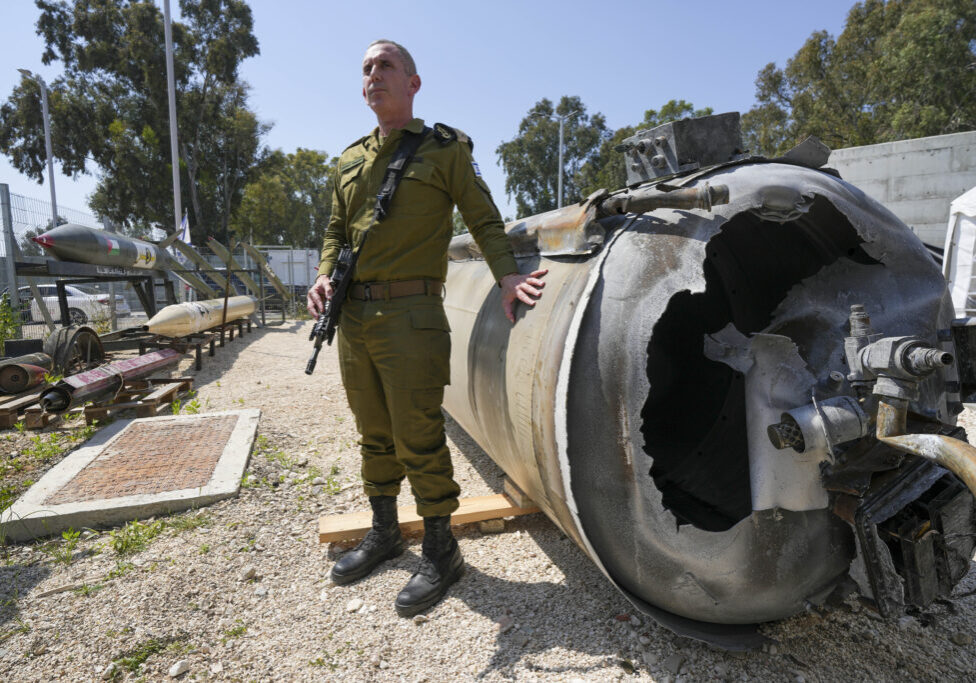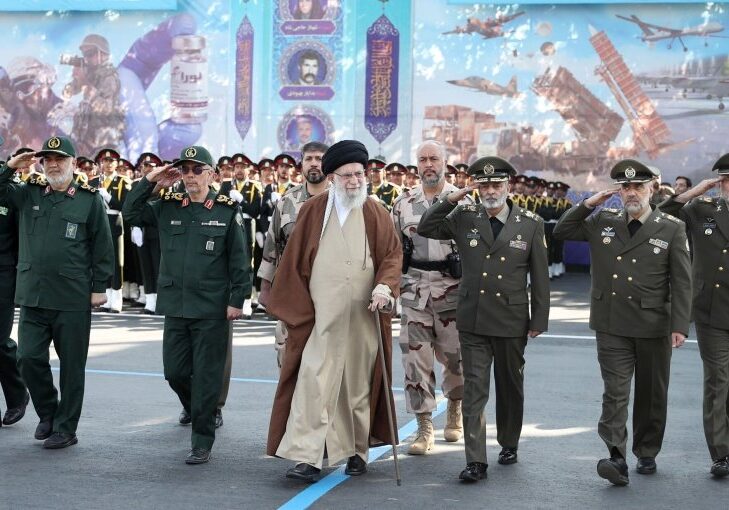Australia/Israel Review
Beyond the Summit
Sep 27, 2010 | Michael Herzog
By Michael Herzog
The launch on Sept. 2 of direct Israeli-Palestinian peace negotiations after 15 months of relentless groundwork marks the third attempt in a decade to resolve the outstanding core issues pertaining to a two-state solution. Many on both sides question whether Prime Minister Binyamin Netanyahu and President Mahmoud Abbas have sufficient will or ability to make the necessary sacrifices – the main factor in determining whether this round of peacemaking will fare better than its predecessors at Camp David and Annapolis.
Both leaders seem to grasp the importance of the moment in its domestic, bilateral, and wider regional contexts, as well as the consequences of failure. Yet they have entered negotiations amid an atmosphere of mistrust and facing significant challenges. Although both are currently stable at the helm, they will have to overcome strong ideological inhibitions and political opposition from within their own constituencies – not to speak of extremists – before they can bridge substantial bilateral gaps on sensitive core issues. Completing a full year of negotiations – the ambitious target for reaching a framework agreement – and achieving a breakthrough will require them to navigate major obstacles.
On the ground, optimism regarding the West Bank’s relative stability, economic growth, and unprecedented security coordination is overshadowed by Abbas’ inability to deliver Hamas-controlled Gaza into a practical peace agreement. Moreover, spoilers are anxious to derail the process, as shown when Hamas killed four Israelis and wounded two others in a pair of West Bank terrorist attacks last week.
Israeli Settlement Moratorium
Israel’s ten-month moratorium on West Bank housing construction expires on Sept. 30. Netanyahu has already announced that he will not extend it – he is concerned about being trapped in a measure that has engendered strong opposition in his own government and party, and that could break him politically if sustained over time. Abbas, facing his own domestic pressures and feeling insecure without assurances regarding settlement activity and the territorial endgame, countered diplomatically – in a letter to Quartet leaders – and publicly, by threatening to withdraw from negotiations if Israel resumes construction. Consequently, talks could break down one month after launching, which would make their near-term resurrection extremely difficult, if not impossible.
The moratorium froze the issuing of new housing permits in the West Bank and barred the implementation of old permits for projects that had not yet broken ground. New permits are subject to approval by the minister of defence and are more easily controlled, but implementing old permits would not require further government approval if the current moratorium expires, unless a new restrictive order is enacted. Over time, thousands of old permits have accumulated, and there is no telling how many would be implemented without a moratorium. Traditionally, such projects are subject to financial considerations. Yet given the settlement movement’s announced intention of speedily renewing construction, one can expect considerable housing starts at month’s end if the government stands pat – enough to spark a crisis in the peace process.
Some Israeli officials have suggested approving a limited number of permits in the major settlement blocs that all parties assume will remain under Israeli control in any future peace agreement, but this is unlikely to satisfy Abbas. In any case, the government will probably postpone its decision until the last moment. Accordingly, finding an acceptable solution to the moratorium quandary, one that properly balances both parties’ constraints, will require an assertive and creative American role. In establishing ground rules for the talks, Washington should set a high threshold that makes it difficult for the parties to leave the table.
Terms of Reference and Agenda Setting
When inviting the parties to direct negotiations, Washington abstained from issuing terms of reference. The Palestinian Authority (PA) demanded that the baseline for talks be the 1967 lines with agreed swaps, which Israel rejected as an unwarranted precondition that would establish a single-issue endgame (i.e. on territory) before negotiations even began. Washington sidestepped this demand, referring to the PA’s preferred baseline as “the Palestinian goal.” Consequently, the Palestinians embraced Quartet statements closer to their position as terms of reference, while Israel related only to Secretary of State Hillary Clinton’s invitation to resume direct talks without preconditions.
This seemingly technical issue is likely to become a substantive one. The PA has prioritised the territorial endgame as a prerequisite for compromise on other core issues. But security is the first priority for the Israeli government, which will not yield major territorial concessions until it is sure that the resultant Palestinian state would be effectively demilitarised and nonthreatening.
Comprehensive vs. Rolling Agreement
To bypass such an impasse, past negotiations were based on the principle that “nothing is agreed until everything is agreed.” This allowed the parties to sequence their negotiations (e.g., the “radioactive” issue of Jerusalem was delayed in the Annapolis process) and expose some flexibilities. Yet it also proved to be an obstacle when the parties failed to bridge gaps on all core issues: “all or nothing” resulted in nothing and prevented incremental steps forward.
It is time to adopt a less rigid formula that allows for progress even if the parties cannot reach a comprehensive agreement. Such an approach is preferable, at least as a fallback, to the despair of gridlock and the chaos of failure. This approach could also help compensate for Hamas-ruled Gaza’s absence from the process. For this to work, the United States would have to play a leading role, reassuring the Palestinians about the continuity of the process, the aims of the talks, and settlement construction, while providing Israel with a safety net regarding its vital security interests.
The Regional Aspect
Although the moderate Arab states encouraged Abbas to enter direct talks, it is not clear to what extent they are willing to contribute to the process. Active Arab support is important. Absent a comprehensive regional peace architecture involving Syria and Lebanon, Arab governments should buttress Israeli-Palestinian talks by providing cover for painful Palestinian compromises and incentives for Israeli ones, demonstrating to Israelis the regional benefits of peacemaking. Egypt and Jordan could also help establish security arrangements, while the Gulf states could provide economic backing. It is also time to revisit a Madrid-like multilateral cooperation framework.
The US Role
All previous negotiations were conducted bilaterally – despite varying degrees of US involvement at certain stages, American negotiators were present in the negotiating room, with rare exceptions, only during summit gatherings. This time, however, Palestinians are pushing for a more active American role in the negotiations, with the hope that the Obama Administration, committed as it to Palestinian statehood, will ultimately deliver – or, in case of failure, not blame the PA. This is why the Palestinians preferred proximity talks to direct ones.
For its part, Washington seems poised to have US officials in the room, even though much of the negotiating is supposed to be conducted directly by Abbas and Netanyahu. The parties will have to find the right balance between relying on the United States and maintaining true bilateral negotiations as would-be partners for peace. And regardless of actual US participation in the negotiating room, they should keep Washington informed so that it can help minimise and bridge gaps as needed.
Thinking about Success and Failure
The stakes are high, and a third failure within a decade would be a catastrophe for all involved. It would deal a devastating blow to the two-state concept and energise radicals throughout the region – particularly Iran and its affiliates who reject peace and espouse jihadism.
Unfortunately, most of the past 15 months were spent simply getting to the table. Now is the time to focus on what will be required to succeed.
In light of this background, the parties should approach this round of peacemaking carefully. Before addressing the core issues, they should thoroughly discuss a number of other items: the nature of the top-down process; its guiding principles; how it converges with the bottom-up process of state-building led by PA Prime Minister Salam Fayyad; proper sequencing of issues; confidence-building measures; alternatives to deadlock; creating a public atmosphere conducive to peace; and the regional Arab role.
In statesmanship it is always advisable to contemplate a Plan B in case Plan A is derailed. Currently, only the PA seems to be doing so via its West Bank state-building process coupled with fostering the idea of seeking UN recognition of a Palestinian state based on the 1967 lines. The one-year target for the peace talks coincides with Fayyad’s timeframe for completing the essential phase of the state-building process. While the state-building process should be encouraged by all, the United States would do well, at this stage, to dispel Palestinian hopes of adding a unilateral diplomatic layer to the negotiations; falling in love with Plan B might minimise the chances of success for Plan A.
Brig. Gen. (Ret.) Michael Herzog is The Washington Institute for Near East Policy’s Milton Fine International Fellow, based in Israel. He participated in all Israeli-Palestinian peace talks since 1993. From May 2009 until March 2010, he served as special emissary for the Israeli prime minister and defence minister in efforts to relaunch the peace process. © Washington Institute, reprinted by permission, all rights reserved.
Tags: Israel






